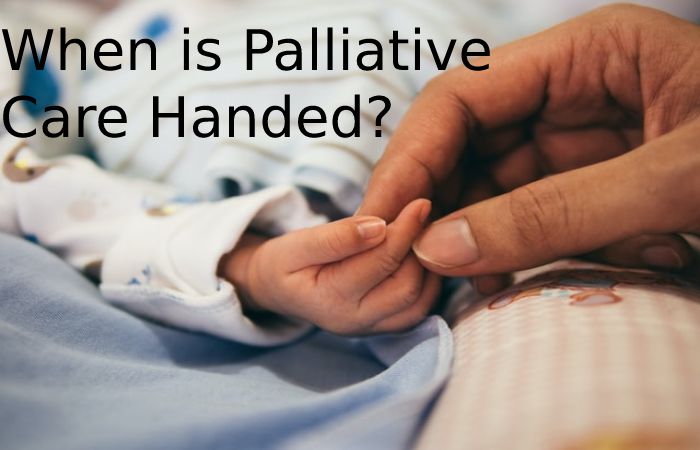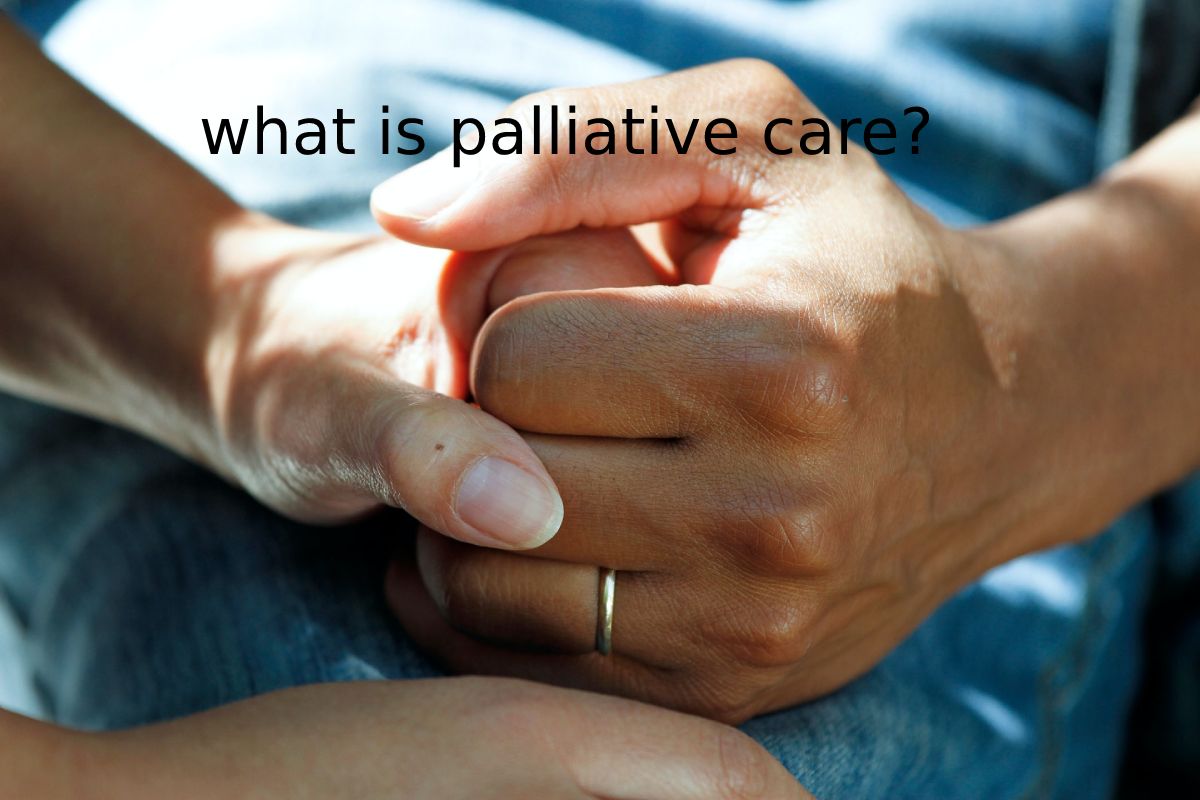Palliative care that helps people with serious ails feel more by preventing or treating the symptoms and side goods of the complaint and its treatment.
Table of Contents
When is Palliative Care Handed?

The palliative form is to help people with grave ails feel more. These allow or treat the symptoms and side goods of the complaint. Treatments with palliative care and the condition’s emotional, social, practical, and spiritual problems remain also treated. When people feel more in these areas, they have a better quality of life.
May remain given simultaneously as treatments intended to cure or treat the complaint. Can remain handed when the complaint remains diagnosed, throughout treatment, during follow-up, and at the end of life.
May remain offered to people with ails analogous as
- Cancer
- Heart complaint
- Lung conditions
- Renal insufficiency
- Madness
- HIV AIDS
- ALS
While entering lodge care, people can remain under the supervision of their regular health care provider and still admit treatment for their ails.
Who Provides Palliative keep?
Any health care provider can give a palliative form. But some providers specialize in them. Palliative care can be handled by
- A team of croakers
- Babysitters and specialized babysitters
- physical assistants
- Pukka Nutritionists
- Social workers
- psychologists
- massage therapists
- chaplains
Lodge care may remain offered by hospitals, home health agencies, oncology conventions, and long-term care conventions. The provider or sanitorium can give you the terms of palliative care specialists hard you.
The difference between palliative care and lodge care
Both palliative care and lodge care give comfort. But palliative care can start at the time of opinion and at the same time as treatment. Lodge care begins after treatment for the illness is stopped, and the person will not survive the complaint.
Lodge care stands generally offered only when the person stands anticipated to live for six months or lower.
What Palliative care Includes
Serious illness affects further than just the body. It affects all areas of a person’s life and the lives of family members. Palliative care can address these goods of the person’s illness.
Physical Problems
Some symptoms or side goods include
- Pain
- Difficulty in sleep
- Difficulty breathing
- Lack of appetite and feeling sick to your stomach
Treatments may Include
- Medicines
- Nutritional guidance
- Exertion
- occupational remedy
- Integrative antidotes
Emotional, social, and managing problems. During illness, cases and families face stress that can lead to fear, anxiety, hopelessness, or depression. Family members can take responsibility for caregiving if they also have jobs or other duties.
Treatments may Include
- Advice
- Support groups
- Family meetings
- Referrals to internal health professionals
For practical problems. Some of the issues raised by illness are functional, analogous to capitalist or job problems, insurance enterprises, and legal matters.
- Explain complex medical forms or help families understand treatment options
- Give or relate families to financial comforting
- Help you connect with transportation and lodging resources
Spiritual matters. When people remain challenged by illness, they may seek meaning or question their faith. A palliative care team can help cases and their families explore their beliefs and values to move closer to acceptance and peace.
Learn Farther
Tell your provider what bothers you and worries you the most, and tell them what matters most to you. Give your provider a dupe of your will or health care deputy.
Ask your provider what lodge services are available to you. Lodge care is nearly always covered by health insurance, including Medicare or Medicaid. However, talk to a sanitorium social worker or financial counselor, If you don’t have health insurance.
Know your options. Read about advance directives, decide on life- dragging treatment, and choose not to have CPR.
Palliative Care and Cancer
Remains recommended as a regular part of the care given to people with cancer. One of its pretensions is to help treat symptoms and side goods as soon as possible. Remains constantly offered as soon as cancer is diagnosed, supplied simultaneously as cancer treatment, and continues after complete treatment. Does not treat cancer but can remain handed at any time during cancer.
Offering palliative care considers how cancer affects the whole person by helping to relieve symptoms, pain, and stress. It’s about making sure all patient care conditions remain addressed. Specialized professionals in the team. Can help descry and treat internal, physical, emotional, social, and spiritual problems. As part of these services, cases remain given choices, and their caregivers are allowed to partake in care planning.
What remains called palliative care has long remained honored as an essential part of cancer care and treatment. Is also known as supportive care, symptom operation. It’s constantly part of lodge care when cancer remains no longer treated because it But palliative form can start at the spell of opinion and at the equal time as treatment worsens.
Parallels
And also lodge care give a better quality of life and relieve seriously ill people’s symptoms and side goods.
Both remain handed by particular care armies that address a person’s physical, emotional, internal, social, and spiritual conditions.
Conclusion
Palliative care is an method to care that you may want to access at any stage of a serious illness. It helps you manage symptoms and address concerns that matter most to you.

